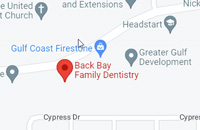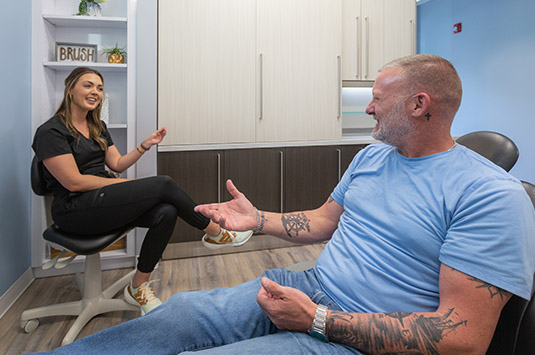Discover More About Our Approach to Tooth Extractions
When it comes to tooth extractions, a lot of times it can be a very in-the-moment or emotional decision for a patient if they’re in a lot of pain. Patients that require a tooth extraction, the first thing is, is that we want to make sure that they are comfortably numb. If you can get a patient comfortably numb, then that’s 90% of the battle. Once a patient trusts that they’re numb, we usually don’t have any problems with that. A lot of times we go ahead and graft or bulk up the site where the tooth is missing in preparation for an implant down the road. Not all patients understand the importance of it at that time, and whenever they’re in pain, they just want to be out of pain. So that option is available to where we can take the tooth out, we can graft or build up the site, and have that site ready for a year or so down the road when that patient understands how important it is to have something in that space.


